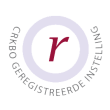Flip the conference!

Last week I attended the Media and Learning Conference in Brussels for the second time. Three years ago I had been there too and liked it very much. So my expectations were high. But already during the first morning I found out that my way of acquiring information and my way of learning had changed throughout the years. I had become like a modern student, who needed to be entertained a bit more.
Flip it!
I wanted to be more actively involved in a speaker’s session and if that activity wasn’t offered, my thoughts would wander off and I would open my iPad again or check my phone for tweets or messages that were not sent. After this moment of awareness I suddenly knew it: this conference had to be flipped, just like us teachers like to flip the classroom and ask our students to get ready before the actual lesson is given. In other words: my brain had to be alerted a bit more before all conference itself. Only then I would feel more related to most of the topics and speakers. In the convenience of my own home I would have sat down, watch intro videos of say 1.5 minutes per speaker (similar to the MEDEA AWARD-video promos), read excerpts of the presentation or workshop and see some triggering visuals or video footage that would warm me up in a nice and relaxed way. Anything that would make me more curious and give me a better idea of what I could expect and what the speakers’ projects were about. This would also make it easier to choose from the many (how many, 70+ ?) sessions offered.
Networking
Beside the pre-work in flipped-time at home I wish that I had had more time to network. I did do quite some networking, don’t get me wrong, but networking during active sessions, call them workshops, could bring out more passion and engagement. So, if the conference includes:
- networking and workshop sessions that require participant involvement and provide opportunities in which participants share information more actively
- presentation sessions that have already been seen beforehand (for example at home)
I’d be a very happy conference visitor!
Presentations and sessions I loved:
- Steve Hogg from the Southampton Solent University, with Using video to engage distance learners, and the nice video-spoken messages from his colleague Andrew
- Sofia Padelopoulou’s Grocery Store video about creating more awarenes
s about internet safety - Commemorative education by Pieter Trogh of the Flanders Fields Museum
- the MEDEA Award winner Stephanie Wössner, Un autre monde / Eine andere Welt, with the virtual Second Life language learning environment
- Lord David Puttnam from Ireland, about the short term memory, constant and rapid change in visual media and about how he works on distance with his students
- Rene Tristan Lydiksen, LEGO Education, and his great analogy between composing music and creating a duck from six LEGO stones, and writing code in computer language
Tips to any conference organizer:
- offer summaries, excerpts, recorded video talks et cetera at the conference website before the actual conference date, so that attendants can prepare, choose their preferred sessions, get to know the speakers and perhaps offer a few moments that the attendant can talk to the speaker in a live session through Skype. This is not new. It’s already offered, why not embrace this at the M&L conference too!
- create more relax spaces at the conference location in which people can sit down in chairs or sofas, take a break, talk with each other and informally come to exchange many good things about their work, their passions, their projects, their future plans;
- upload all presentations a few days before the actual event, so that one: all presenters can easily access them at the event and two: they don’t have to be sent afterwards; I heard that uploading all presentations would take two weeks, absolutely not in line with what I expect at a Media Conference;
- the evaluation should be done per session, preferably digitally and right after each session, so that not all sessions get evaluated on one sheet, which is now done on the overall evaluation form; it is simply impossible;
- offer less sessions and offer more time to have informal chats and talks in order to exchange knowledge, good practices and demos in smaller settings (corners) of a few rooms;
- give more demonstrations and hands-on practices of how to use new media, in small groups;
- ask presenters/speakers to show slides that hold less than 10 words each; blocks of text should be put on web pages, not on slides. Speakers should engage and inspire, come with anecdotes and take a group of well-prepared fellow educators along in an inspiring story. Just like a good teacher can do!
My presentation about adaptive learning & English a Day
I had the honor to give a presentation at this conference as well. I focused on adaptive learning, which I demonstrated by elaborating about English a Day. Watch my Prezi- presentation: English a Day, an Adaptive ESL Learning Tool using daily prompts. Or click this page and read more about English a Day on this website. For those who like to try out the free web-app, please subscribe at www.englishaday.com

